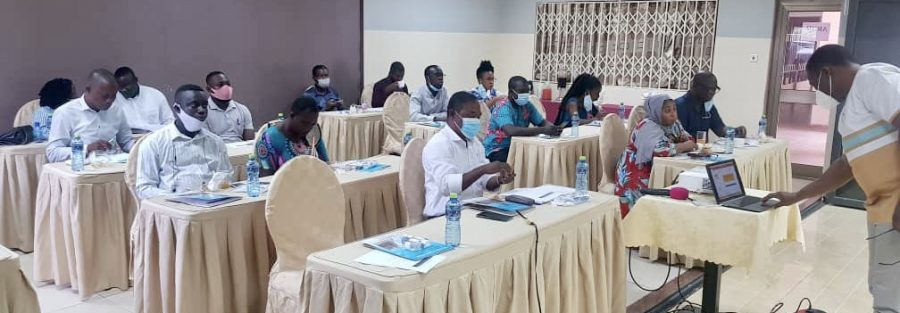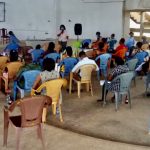A meeting between ARHR and some private organizations has been held on 10th February, 2021 at the Akroma Plaza Hotel in the Western Region.
The meeting shared with private and corporate organizations, working in the Western and Western North Regions, the various interventions and roles they could play to reduce malaria morbidity in the regions as part of their corporate social responsibility. Participants at the meeting included representatives from Tullow Ghana Limited, Ghana Gas Company, Ghana Rubber Estate Limited and Norpalm Ghana Limited.
A private-public partnership has been proven to be effective in facilitating improvements in both national and local health systems. As such, ARHR believes that the participation of these organizations in the fight against malaria will enhance these organizations’ relationship with communities in the Regions as well as complement national efforts aimed at reducing the incidence and morbidity of malaria in Ghana.
ARHR in partnership with Comic Relief, UK has been implementing the Bridging Gaps, Innovate for Malaria (B4M) project in selected districts in the Western and Western North Regions of Ghana with a focus on reducing the incidence of malaria morbidity. The project focuses on enhancing the capacities of communities to prevent malaria and seek early testing and treatment for all potential malaria cases. It also focuses on equipping communities with skills to demand for their health rights while fostering community-health providers-policy and decision makers partnerships for the strengthening of primary health care systems in order to improve access to quality malaria health delivery at the community level.
Ghana is currently ranked among the 15 highest burden malaria countries in the world with 3% of global malaria cases and deaths. The country reported the highest increase in absolute malaria case numbers, (500,000 new cases) from 2017 to 2018. The Western Region is currently the Region with the second highest malaria prevalence in Ghana and it is estimated that malaria elimination in Ghana will cost USD 961 million between 2020 and 2029 which will prevent 85.5 million cases, save 4,468 lives, and avert USD 2.2 billion in health system expenditures.
It emerged at the meeting that most of these private organizations were already implementing activities in the Western and Western North Regions to help the fight against malaria. Commitments were however made by these private organizations to intensify the implementation of ongoing malaria interventions in those regions. Also, commitments were made to collaborate with the District Health Administration and District Assemblies in the project catchment areas to fight malaria.



